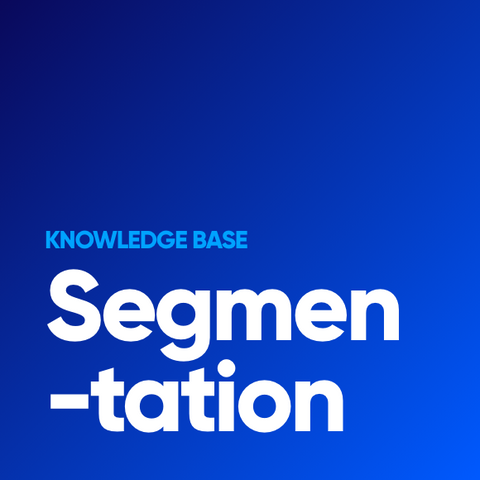The Power of Segmentation: Unlocking Targeted Marketing Success
In the world of digital marketing, precision is the key to capturing your audience's attention and driving real engagement. One of the most dynamic and impactful strategies for achieving this precision is segmentation.
Segmentation isn't just a technique; it's a strategic approach that allows you to divide your audience into well-defined groups. In this comprehensive exploration, we'll delve deep into the world of segmentation, uncover its significance, explore various strategies, and appreciate its pivotal role in the dynamic field of digital marketing.
Unveiling the Essence of Segmentation
Segmentation is a strategic marketing approach where you categorize your audience into smaller, more homogeneous groups. These categories are defined based on shared characteristics, behaviors, or other attributes.
Such attributes include demographics, psychographics, online behavior, purchase history, geographic location, and more. The essence of segmentation is creating highly targeted marketing campaigns, ensuring your message resonates with each audience group.
Why is segmentation so important?
The beauty of segmentation lies in recognizing the diversity within your audience. A one-size-fits-all approach is no longer effective in the ever-evolving world of digital marketing. Segmentation allows you to tailor your content, offers, and messaging to the unique needs and interests of each group, delivering a more dynamic and engaging experience.
Decoding the Significance
The significance of segmentation in the realm of digital marketing cannot be overstated:
-
Personalized Engagement: Segmentation empowers you to create personalized marketing campaigns that speak directly to the unique needs and preferences of each audience group.
-
Efficiency and Relevance: It enhances the efficiency of your marketing efforts by ensuring that your messaging is highly relevant to each segment.
-
Higher Conversion Rates: Segmentation often leads to higher conversion rates, as your offers resonate with each segment.
-
Data-Driven Decisions: By providing insights into the performance of various segments, segmentation encourages data-driven decision-making.
-
Improved Customer Experience: It dynamically enhances the customer experience by delivering content and offers more aligned with each group's values.
Strategies for Effective Segmentation
To fully harness the power of segmentation, consider these high-impact strategies:
1. Data Collection: Collect dynamic data on your audience's demographics, behavior, and preferences. This forms the foundation for your segmentation efforts.
2. Segmentation Criteria: Determine the criteria for segmentation. This could be based on age, location, purchase history, online behavior, or any combination of factors.
3. Content Tailoring: Develop dynamic content and messaging tailored to each segment's unique needs and interests. This isn't just about changing a few words; it's about customizing the entire experience.
4. Testing and Optimization: Continuously test and optimize your segmentation strategies to ensure they deliver the desired results. Use A/B testing and other techniques to fine-tune your campaigns.
5. Automation: Implement dynamic automation to ensure that the right content and offers are delivered to the right segments at the right time. Automation can streamline your efforts and ensure consistency.
Celebrating the Impact of Segmentation
The impact of segmentation in the realm of digital marketing is indeed transformative:
-
Higher Engagement: Segmentation increases audience engagement as content and offers resonate with each audience group.
-
Conversion Rate Boost: It often leads to higher conversion rates, as your messaging aligns with the unique preferences of each segment.
-
Cost Efficiency: Segmentation reduces marketing wastage by delivering content only to those most likely to respond, ultimately increasing your return on investment (ROI).
-
Customer Satisfaction: It enhances customer satisfaction by delivering a more personalized and relevant experience.
-
Data-Driven Decision-Making: Segmentation encourages data-driven decision-making by offering insights into which segments perform best and why.
Segmentation Across Diverse Industries
Segmentation is a versatile strategy applicable to a wide array of industries:
-
E-commerce: Online retailers use segmentation to measure the cost of acquiring potential customers through various marketing channels, such as pay-per-click (PPC) advertising.
-
B2B Services: B2B companies leverage segmentation metrics to assess the efficiency of lead generation strategies for services such as consulting, software, or professional services.
-
Healthcare: Healthcare providers use segmentation to understand the costs of acquiring leads for services, appointments, or patient education.
-
Finance: In the financial sector, companies employ segmentation metrics to measure the costs associated with acquiring leads for banking, insurance, or investment services.
-
Education: Educational institutions use segmentation to evaluate the efficiency of lead generation efforts for student enrollments or course registrations.
The Future of Segmentation
As the world of digital marketing continues to evolve, the future of segmentation is filled with exciting possibilities:
-
Advanced Analytics: Segmentation will be enhanced by more advanced analytics tools, providing deeper insights into lead acquisition costs and audience behavior.
-
Dynamic Personalization: The future will see dynamic personalization of content and offers, driven by sophisticated segmentation criteria and automation.
-
Privacy Considerations: As data privacy becomes more prominent, segmentation will need to adapt to changing regulations while still delivering a personalized experience.
Precision and Relevance
In the ever-evolving world of digital marketing, segmentation is the key to precision and relevance. It allows you to engage your audience on a more personal level, delivering content and offers that resonate with their unique needs and interests.
By embracing the power of segmentation, you can ensure that every audience segment receives a personalized, engaging experience, ultimately driving the success of your marketing efforts.

Segmentation





